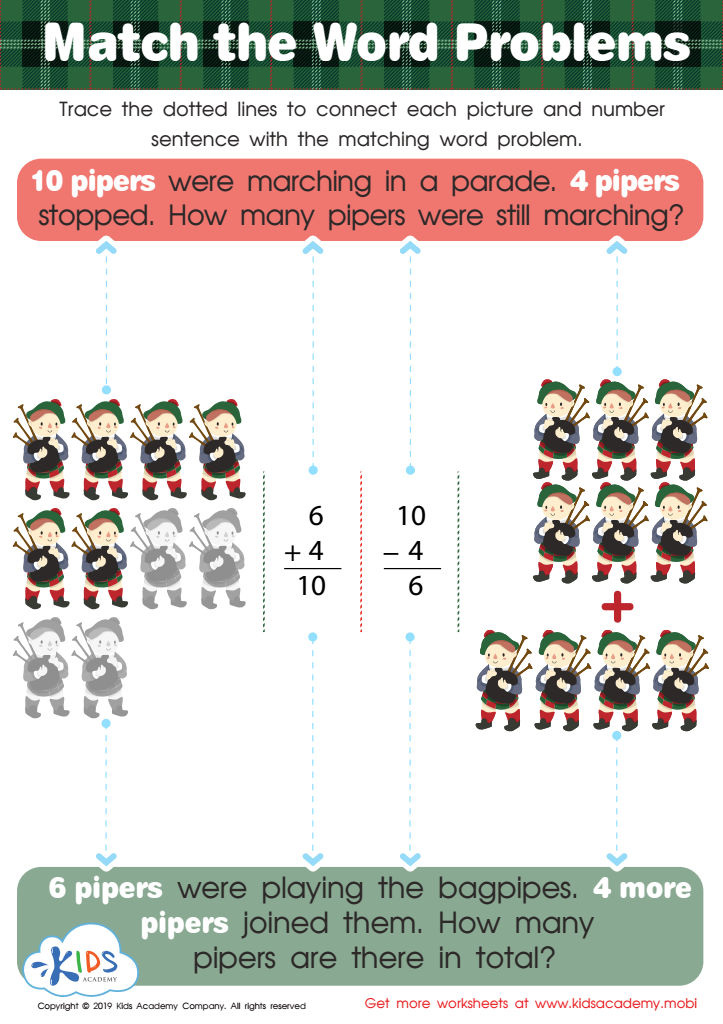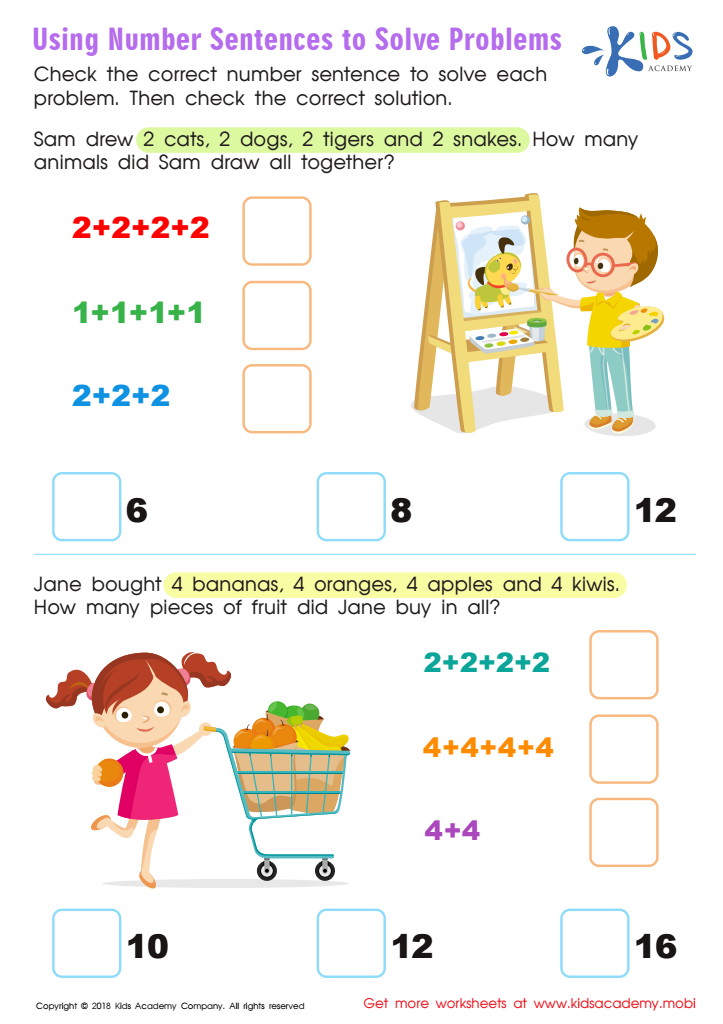Logical thinking development Word Problems Worksheets for Ages 6-9
3 filtered results
-
From - To
Unlock the potential of your child with our engaging "Logical Thinking Development Word Problems Worksheets" designed specifically for ages 6-9. These expertly crafted worksheets encourage problem-solving skills and critical thinking through fun, age-appropriate word problems. Each activity combines creativity with logic, helping young learners decipher challenges and enhance their reasoning abilities. Perfect for in-home learning or classroom use, our worksheets foster independence and a love for math while boosting cognitive skills. Inspire your child to think critically and approach problems with confidence as they tackle these word challenges tailored to their developmental needs. Start their journey towards becoming adept thinkers today!


Tricky Problems Worksheet: Part 2


Match the Word Problems Worksheet


Using Number Sentences to Solve Problems Worksheet
Parents and teachers should care about the development of logical thinking through word problems for children ages 6-9 because this skill forms the foundation for critical thinking and problem-solving abilities essential in everyday life and future academic success. At this age, children are highly receptive and ready to engage in complex cognitive activities, making it an ideal time to foster logical reasoning skills.
Word problems require children to interpret information, analyze situations, and draw conclusions. As they learn to break down the scenarios presented, they practice applying basic mathematical concepts and operations, bridging the gap between abstract numbers and real-world applications. This not only enhances their mathematical abilities but also nurtures logical reasoning and analytical skills that are invaluable in subjects such as science and literacy.
Moreover, engaging in word problems encourages perseverance, as children learn to tackle challenges and apply different strategies to find solutions. It promotes resilience, critical for their overall personal development. Finally, by incorporating logical thinking activities, parents and teachers can create a supportive learning environment that fosters a love for learning and prepares children for the complexities of later academic pursuits and everyday challenges.
 Assign to My Students
Assign to My Students




















